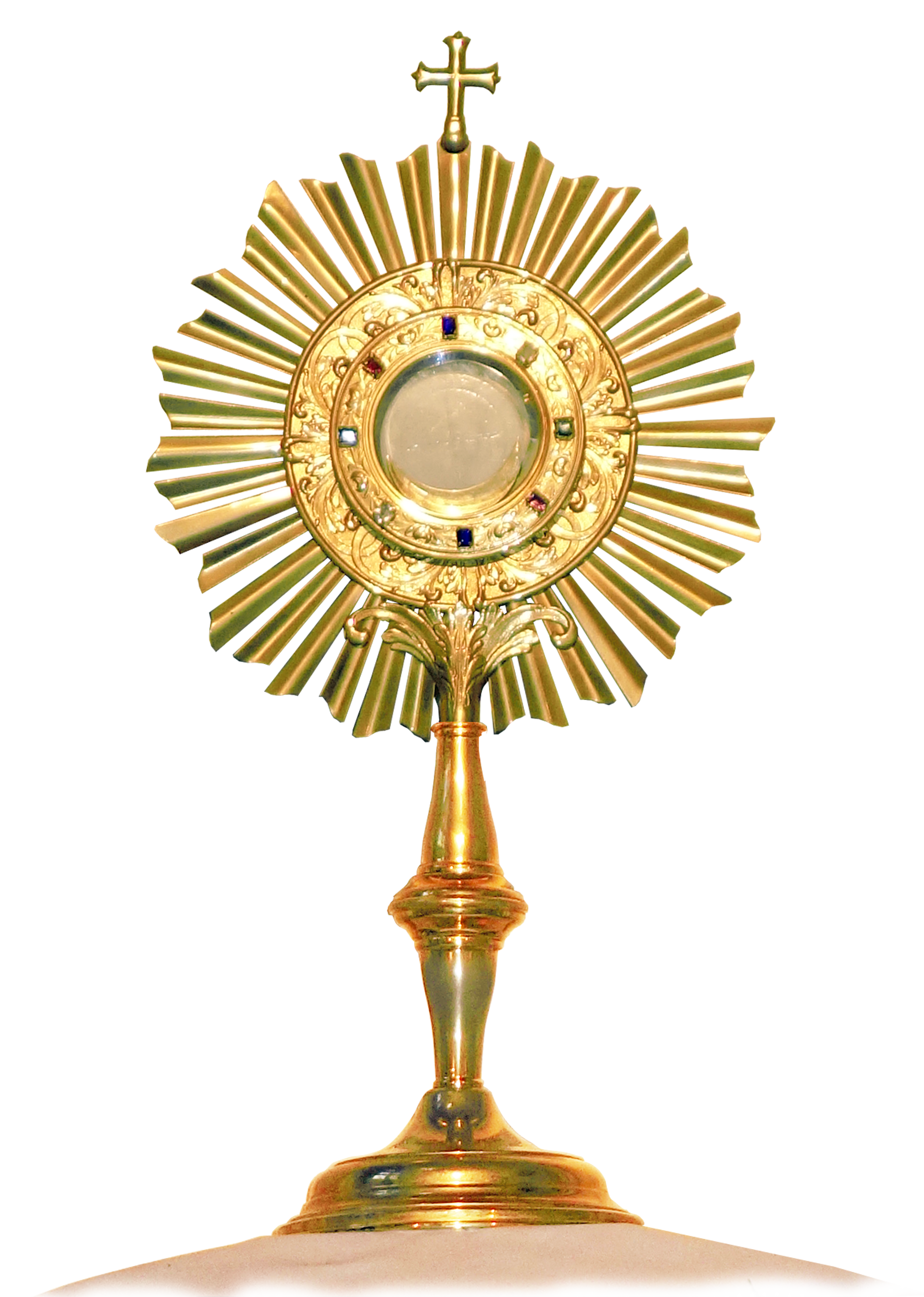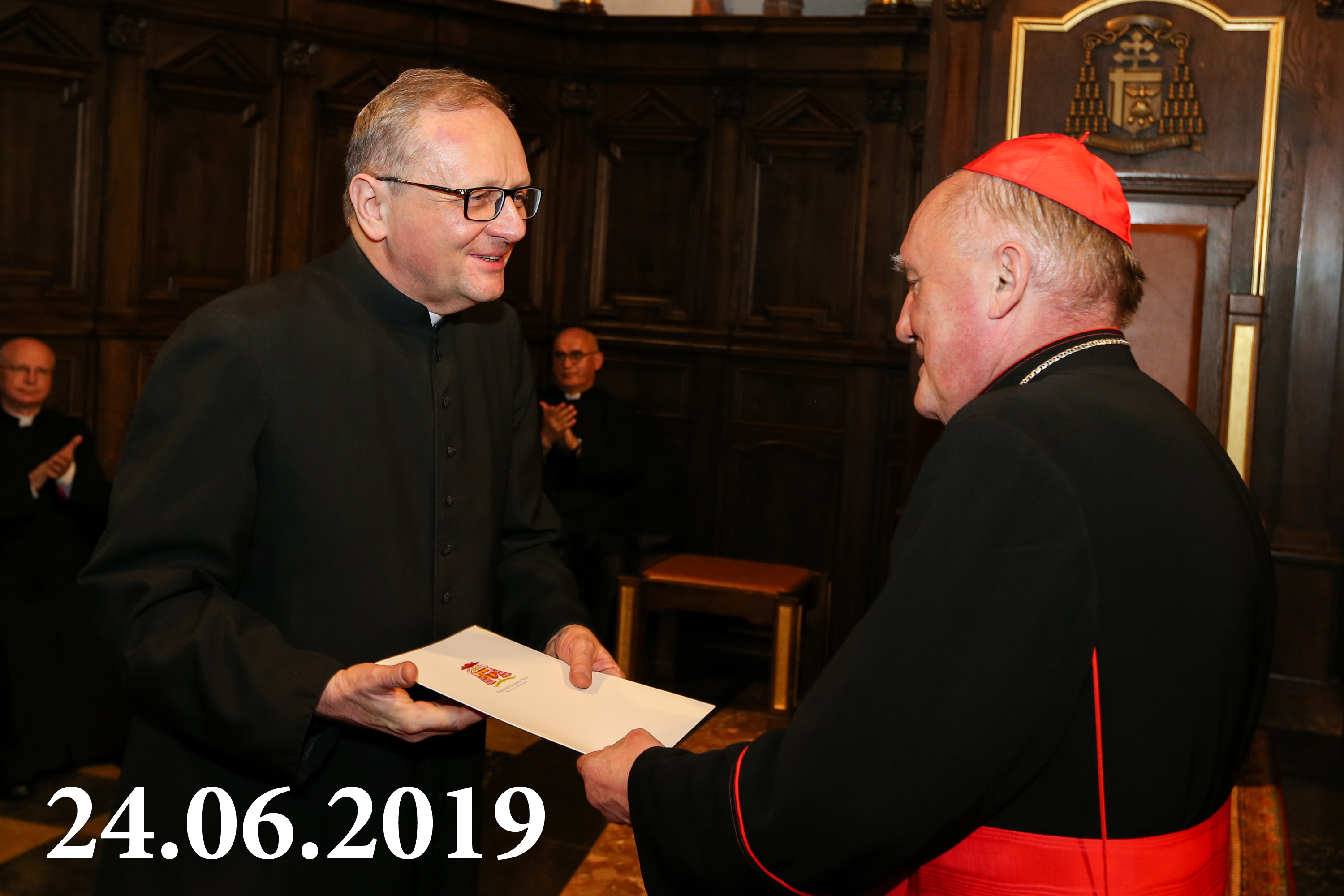Quotes from doctrinal documents of the Church essential for living the faith and the Eucharist
“The Church lives an authentic life when she professes and proclaims mercy-the most stupendous attribute of the Creator and of the Redeemer-and when she brings people close to the sources of the Savior's mercy, of which she is the trustee and dispenser. Of great significance in this area is constant meditation on the Word of God, and above all conscious and mature participation in the Eucharist and in the sacrament of Penance or Reconciliation. The Eucharist brings us ever nearer to that love which is more powerful than death: "For as often as we eat this bread and drink this cup," we proclaim not only the death of the Redeemer but also His resurrection, "until he comes" in glory (cf. 1 Cor 11:26; the acclamation in the Roman Missal). The same Eucharistic rite, celebrated in memory of Him who in His messianic mission revealed the Father to us by means of His words and His cross, attests to the inexhaustible love by virtue of which He desires always to be united with us and present in our midst, coming to meet every human heart.”
(St. John Paul II, Dives in misericordia, 13)
“I wish once more to recall this truth and to join you, my dear brothers and sisters, in adoration before this mystery: a great mystery, a mystery of mercy. What more could Jesus have done for us? Truly, in the Eucharist, he shows us a love which goes “to the end” (cf. Jn 13:1), a love which knows no measure.”
(St. John Paul II, Ecclesia de Eucharistia, 11)
“The body given up for us and made present under sacramental signs was the same body which she had conceived in her womb! For Mary, receiving the Eucharist must have somehow meant welcoming once more into her womb that heart which had beat in unison with hers and reliving what she had experienced at the foot of the Cross. (…) It means accepting – like John – the one who is given to us anew as our Mother. (…) The Magnificat expresses Mary's spirituality, and there is nothing greater than this spirituality for helping us to experience the mystery of the Eucharist.”
(St. John Paul II, Ecclesia de Eucharistia, 56-58)
“(…) the Eucharist strengthens our charity, which tends to be weakened in daily life; and this living charity wipes away venial sins. By giving himself to us Christ revives our love and enables us to break our disordered attachments to creatures and root ourselves in him (…).”
(Catechism of the Catholic Church, 1394)
“God incarnate draws us all to himself. We can thus understand how agape also became a term for the Eucharist: there God's own agape comes to us bodily, in order to continue his work in us and through us.”
(Benedict XVI, Deus caritas est, 14)
“In the Eucharist Jesus does not give us a "thing," but himself; he offers his own body and pours out his own blood. He thus gives us the totality of his life and reveals the ultimate origin of this love. He is the eternal Son, given to us by the Father.”
(Benedict XVI, Sacramentum Caritatis, 7)
“«(…) he gives himself in order to raise man up and save him. This is love in its most radical form». (…) In instituting the Eucharist, Jesus had spoken of the "new and eternal covenant" in the shedding of his blood (…).”
(Benedict XVI, Sacramentum Caritatis, 9)
“In the Paschal Mystery, our deliverance from evil and death has taken place. In instituting the Eucharist, Jesus had spoken of the "new and eternal covenant" in the shedding of his blood (cf. Mt Mk 14:24; Lk 22:20).”26:28;
(Benedict XVI, Sacramentum Caritatis, 9)
“The unity of ecclesial communion is concretely manifested in the Christian communities and is renewed at the celebration of the Eucharist, which unites them (…).”
(Benedict XVI, Sacramentum Caritatis, 15)
“(…) the Eucharist makes our whole life a spiritual worship pleasing to God (…).”
(Benedict XVI, Sacramentum Caritatis, 70)
“It is not the eucharistic food that is changed into us, but rather we who are mysteriously transformed by it. Christ nourishes us by uniting us to himself; «he draws us into himself.»”
(Benedict XVI, Sacramentum Caritatis, 70)
“This «eternal life» begins in us even now, thanks to the transformation effected in us by the gift of the Eucharist: «He who eats me will live because of me» (Jn 6:57).”
(Benedict XVI, Sacramentum Caritatis, 70)
“Eucharistic spirituality is not just participation in Mass and devotion to the Blessed Sacrament. It embraces the whole of life.”
(Benedict XVI, Sacramentum Caritatis, 77)
“(…) by sharing in the sacrifice of the Cross, the Christian partakes of Christ's self-giving love and is equipped and committed to live this same charity in all his thoughts and deeds.”
(Benedict XVI, Sacramentum Caritatis, 82)
“The moral urgency born of welcoming Jesus into our lives is the fruit of gratitude for having experienced the Lord's unmerited closeness.”
(Benedict XVI, Sacramentum Caritatis, 82)




